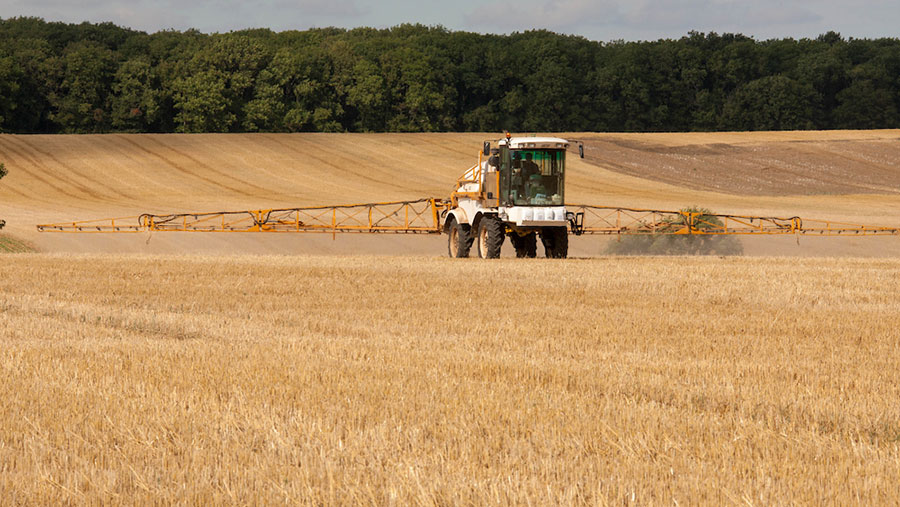Frustrated farmers blast glyphosate deadlock
 © Tim Scrivener
© Tim Scrivener Farmers have taken to social media to express their frustration with the ongoing deadlock over the future of glyphosate.
The European Commission postponed a vote to extend the licence of the weedkiller for 10 years after its proposal failed to attract enough support from member states on Wednesday (25 October).
The lack of consensus has left the future of glyphosate use in the EU in serious doubt, with the licence for the herbicide due to expire on 15 December.
See also: On-farm trials focus on growing without glyphosate
It is understood the commission is working on an amended proposal for a four-year licence extension.
A vote on this shorter renewal period for glyphosate could be held at the next EU standing committee meeting on plants, animals, food and feed on 6 November.
France and Italy, which are opposed to the 10-year extension, have both indicated they may be willing to accept a shorter renewal to allow time to find alternatives.
#Glyphosate is safe – consider the facts https://t.co/QWynCRFCU3#GlyphosateIsVital #WithOrWithout #ag pic.twitter.com/HyCXPauEod
— ECPA (@cropprotection) October 25, 2017
The NFU and NFU Scotland expressed deep disappointment with the failure to reach an agreement – despite overwhelming scientific evidence showing glyphosate it safe when used according to the label.
EU farm body Copa Cogeca, the umbrella organisation that represents European farmers’ groups at EU level, said it was bitterly disappointed with Wednesday’s “no vote”, adding there was “no reason” why glyphosate should not be re-approved for 15 years.
‘Science-based’ decision
It said the decision to re-authorise glyphosate, the active ingredient in Monsanto’s Roundup herbicide, “must be science-based and not the result of politics”.
Without a renewal, affordable food supplies and farm conservation practices will be “thrown into jeopardy”, warned Copa-Cogeca secretary-general Pekka Pesonen.
“Glyphosate substantially reduces the need for tillage which reduces soil erosion and keeps soil fertility and soil organic matters up,” he said.
“Other benefits of no-till and min-tillage include lower fuel consumption in comparison with conventional ploughing techniques and lower release of carbon dioxide from the soil into the atmosphere.”
In 2015, the International Agency for Research on Cancer (IARC) issued a report labelling glyphosate as a “probable carcinogen”.
But the European Food Safety Authority and the European Chemicals Agency dismissed the IARC assessment and both have declared the weedkiller safe.
Frustration over impasse
Farmers in the UK took to Twitter to vent their growing frustration over the impasse, with many posting tweets using the hashtags #glyphosateisvital and #farmers4glyphosate
#Notill loads of bird life bug life no damage 2soil from ploughs or cultivation #glyphosate really is good #glyphosateisvital @ChrisGPackham pic.twitter.com/SB4WcOsWAZ
— Olly harrison (@agricontract) October 25, 2017
To think this is more carcinogenic than #glyphosate and will be injested without a 2nd thought by many @Europarl_EN members tonight pic.twitter.com/HvsPukdycw
— Jake Freestone (@No1FarmerJake) October 24, 2017
But organic lobby the Soil Association, which has been lobbying for a ban on pre-harvest use of glyphosate, said the weedkiller’s “days are clearly numbered”.
Its head of policy Laura MacKenzie said: “We need to build on the excellent work being done by farmers and researchers to develop alternatives to glyphosate so farm businesses can continue to thrive if a decision is reached by EU countries to phase-out its use, whether on grounds of human health risks or environmental harm.”

